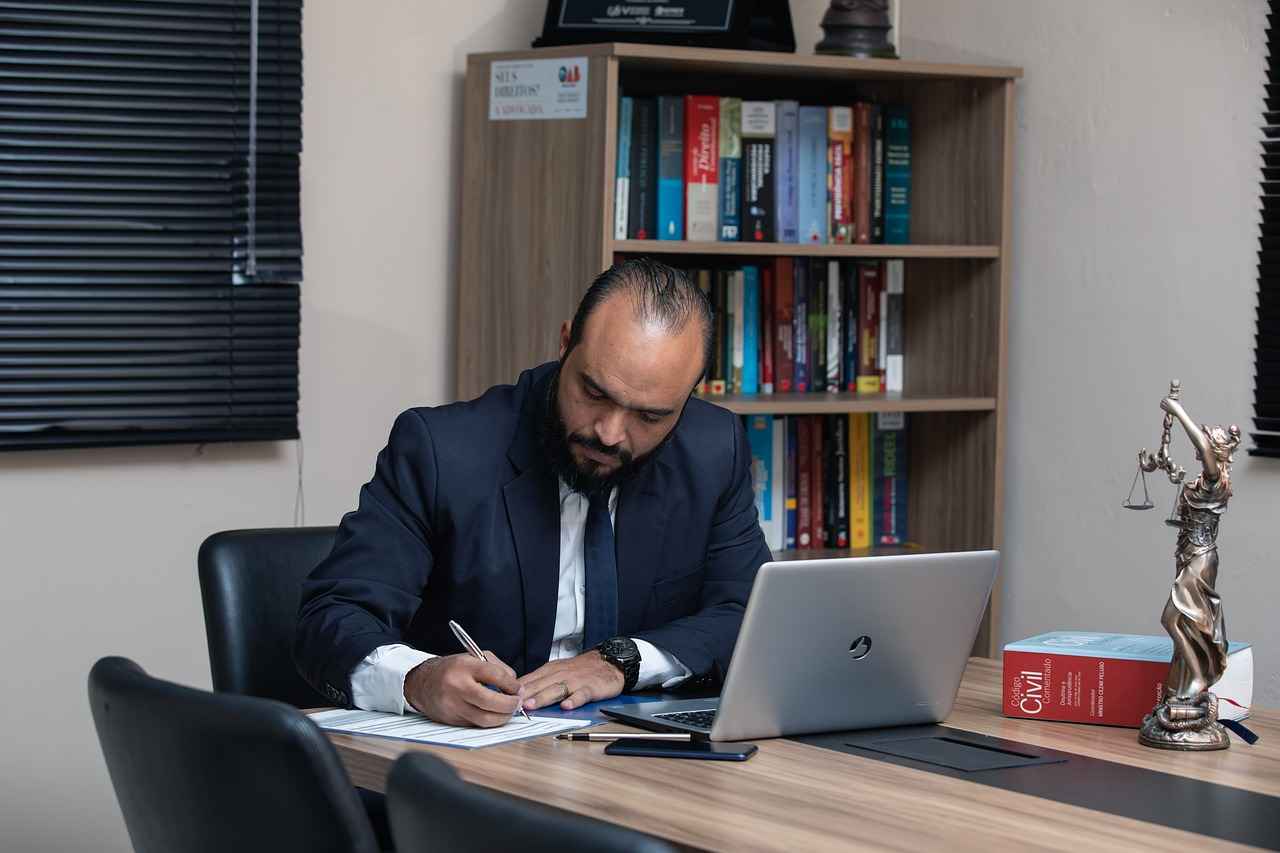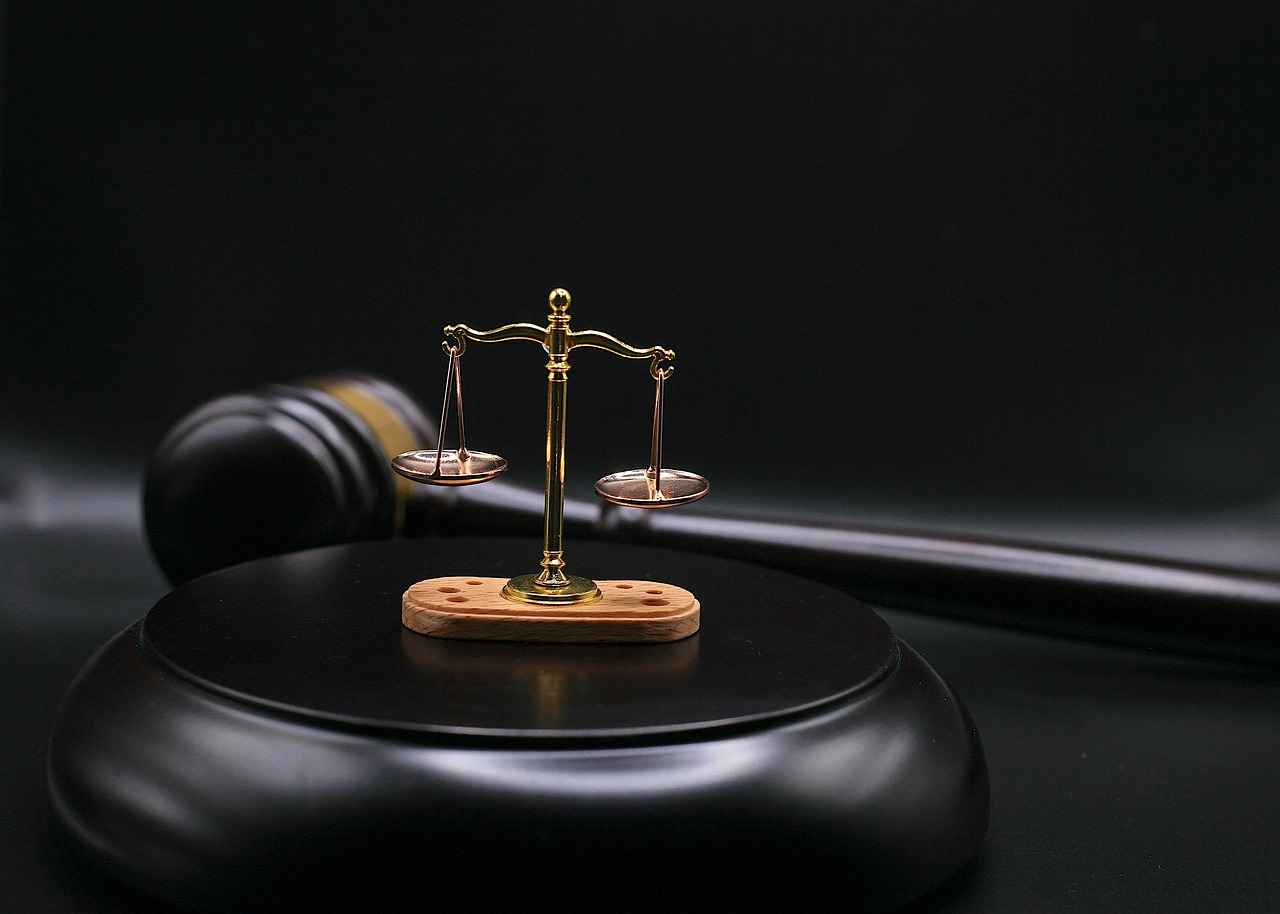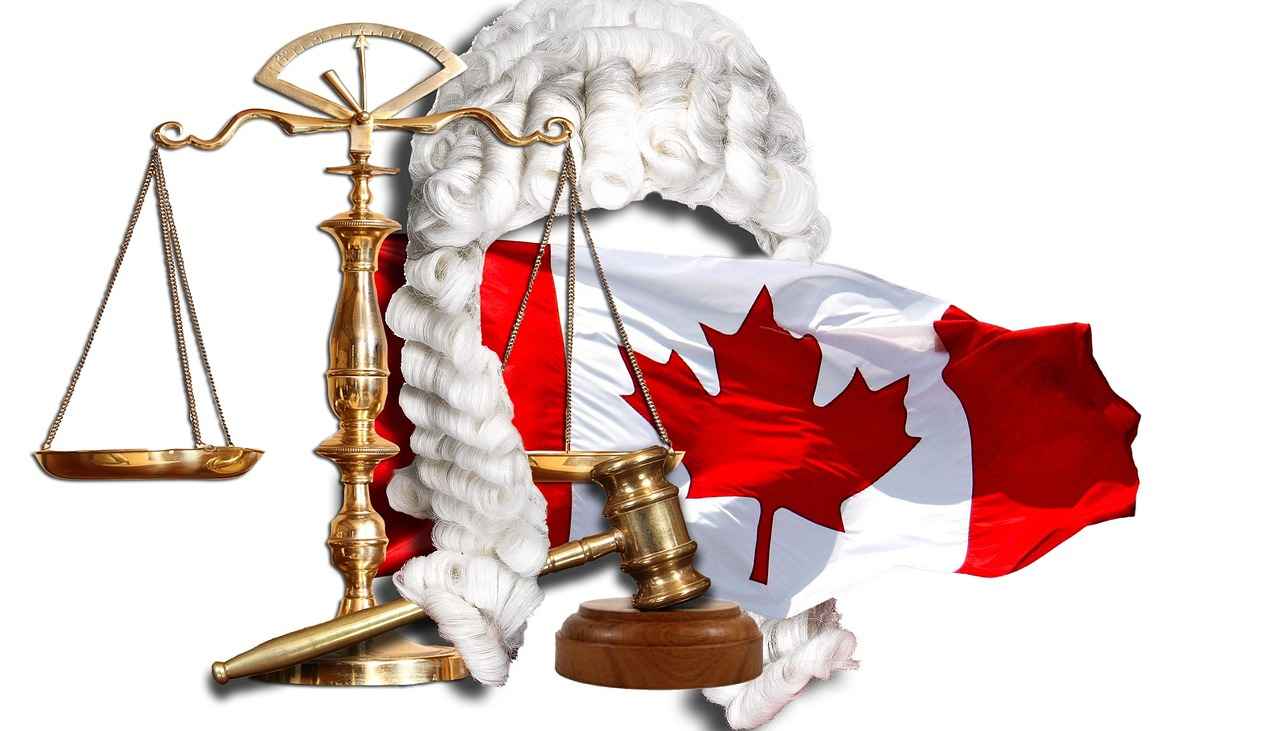This article explores various types of legal cases prevalent in the U.S. and offers expert guidance on finding qualified lawyers in major cities like San Jose, California.
Understanding Personal Injury Cases
Personal injury cases arise when an individual suffers harm due to another party’s negligence. Examples include car accidents, slip and falls, and workplace injuries. When seeking a personal injury attorney, look for someone with a proven track record in similar cases. Check their success rate, read client testimonials, and ensure they are familiar with local laws and regulations.
Medical Malpractice: What You Need to Know
Medical malpractice involves negligence by healthcare professionals that results in patient harm. This can include misdiagnosis, surgical errors, or failure to provide appropriate treatment. It is essential to choose a lawyer who specializes in medical malpractice and has experience with cases involving medical experts. Look for credentials such as board certifications and past case outcomes.
Breach of Contract: Legal Implications
Breach of contract cases occur when one party fails to fulfill their obligations as outlined in a contract. To navigate these disputes effectively, hire a lawyer with expertise in contract law. They should have experience in negotiating settlements and representing clients in court. Verify their knowledge of contract specifics related to your case, whether it involves business agreements, employment contracts, or real estate transactions.
Property Disputes: Navigating Legal Challenges
Property disputes can stem from various issues, including ownership conflicts and zoning regulations. An attorney well-versed in real estate law can help resolve these disputes efficiently. When selecting a lawyer, consider their experience with similar cases and their ability to negotiate with opposing parties. Check for any disciplinary actions and ensure they have a good standing with the local bar association.
Landlord-Tenant Disputes: Know Your Rights
Disputes between landlords and tenants often involve lease agreements, eviction processes, and tenant rights. To ensure your rights are protected, hire an attorney who specializes in real estate law and has experience in landlord-tenant issues. Look for someone who can provide clear guidance on local housing laws and has a history of successful outcomes in similar cases.
Defamation Cases: Understanding Libel and Slander
Defamation cases involve false statements that damage an individual’s reputation. These can take the form of libel (written) or slander (spoken). Finding a lawyer who specializes in defamation law is crucial, as these cases often require a deep understanding of both legal and media landscapes. Ensure your attorney has experience in handling high-profile cases, as they may involve complex media laws.
Employment Disputes: Protecting Your Rights
Employment disputes can encompass wrongful termination, discrimination, and harassment claims. It is vital to select an attorney with expertise in employment law who can advocate for your rights in the workplace. Look for a lawyer who is familiar with federal and state employment regulations and has a successful track record in representing employees against employers.
Product Liability: Holding Manufacturers Accountable
Product liability cases arise when a defective product causes injury. A lawyer with experience in this field can help you seek compensation from manufacturers or distributors. Look for attorneys who have handled similar cases and have a strong understanding of consumer protection laws. Their ability to work with expert witnesses can also be a significant advantage in court.
Wrongful Death: Seeking Justice
Wrongful death cases occur when negligence leads to an individual’s death. Navigating these cases requires sensitivity and expertise. An experienced attorney can guide families through the legal process of seeking justice and compensation. Ensure your lawyer has a compassionate approach and a solid record of winning wrongful death cases.
Class Action Lawsuits: When to Join Forces
Class action lawsuits allow individuals with common claims against a defendant to band together. Finding a lawyer experienced in class actions can maximize your chances of success. Look for attorneys who have successfully managed class action cases and understand the complexities involved, including the ability to represent large groups of clients effectively.
Assault and Battery: Legal Definitions
Assault and battery cases involve intentional harm to another person. A knowledgeable attorney can help victims understand their rights and pursue legal action effectively. When selecting a lawyer, ensure they have experience in criminal defense and personal injury law, as these cases often intersect.
Drug Offenses: Navigating Criminal Charges
Drug offenses encompass a range of charges from possession to trafficking. Hiring a lawyer specializing in criminal defense can greatly influence the outcome of these serious charges. Look for attorneys with a strong understanding of drug laws and a track record of successful defenses in similar cases.
Theft and Burglary: Understanding the Charges
Theft and burglary cases involve the unlawful taking of property. A skilled criminal defense attorney can provide essential guidance and representation in these cases. Check their experience with theft-related charges and their ability to negotiate plea deals or represent you in court effectively.
Fraud and Embezzlement: Legal Consequences
Fraud and embezzlement cases involve deception for financial gain. Engaging an attorney with experience in white-collar crime is crucial for defending against these serious allegations. Look for lawyers who have successfully handled similar cases and can provide a robust defense strategy.
Murder and Homicide: Serious Legal Matters
Murder and homicide cases are among the most serious criminal charges. Finding a qualified criminal defense attorney is critical for navigating the complexities of these cases. Ensure your lawyer has extensive experience in criminal law and a history of handling high-stakes cases.
DUI/DWI: Understanding Your Legal Options
DUI/DWI charges can have severe consequences. An attorney experienced in handling such cases can help mitigate penalties and explore legal defenses. Look for lawyers who specialize in DUI defense and have a successful track record in reducing charges or securing favorable outcomes.
Domestic Violence: Protecting Victims
Domestic violence cases involve abuse within intimate relationships. It’s essential to find a lawyer who understands the sensitive nature of these cases and can provide effective representation. Look for attorneys who have experience in family law and domestic violence cases, ensuring they can navigate the legal system with empathy and expertise.

Understanding Personal Injury Cases
Understanding personal injury cases is essential for anyone who has suffered harm due to the negligence of another party. These cases can arise from various incidents, including car accidents, slip and falls, medical malpractice, and more. When an individual is injured, it is crucial to establish that the injury resulted from someone else’s negligence or intentional actions. This legal principle holds the responsible party accountable for the damages incurred by the victim.
To effectively navigate the complexities of personal injury law, finding a qualified attorney is paramount. Here are some key considerations when searching for the right legal representation:
- Experience and Track Record: Look for a lawyer who specializes in personal injury law and has a proven track record of successful case outcomes. An attorney with extensive experience in handling similar cases will be more adept at building a strong case on your behalf.
- Client Reviews and Testimonials: Research online reviews and testimonials from previous clients. A lawyer with positive feedback is likely to provide quality service and support throughout the legal process.
- Initial Consultation: Many personal injury attorneys offer free initial consultations. Use this opportunity to discuss your case, evaluate the attorney’s communication style, and determine if you feel comfortable working with them.
- Contingency Fee Basis: Most personal injury lawyers work on a contingency fee basis, meaning they only get paid if you win your case. This arrangement aligns the lawyer’s interests with yours, as they are motivated to secure the best possible outcome.
- Specialization: Ensure that the attorney you choose has specific experience in the type of personal injury case you are pursuing. Whether it’s a car accident or a medical malpractice claim, specialized knowledge can significantly impact your case.
In addition to these factors, it is essential to be aware of red flags when hiring a personal injury attorney. Avoid lawyers who make unrealistic promises about the outcome of your case or those who pressure you into signing a contract quickly. A reputable attorney will provide you with a clear understanding of the legal process and your options without rushing you into a decision.
Ultimately, personal injury cases can be complex and emotionally taxing. Having the right attorney by your side can make a significant difference in the outcome of your case. By conducting thorough research and considering the factors mentioned above, you can find a qualified attorney who will advocate for your rights and help you obtain the compensation you deserve.

Medical Malpractice: What You Need to Know
Medical malpractice is a critical area of law that focuses on the negligence of healthcare providers, which can lead to serious harm to patients. When a healthcare professional fails to adhere to the established standard of care, it can result in devastating consequences for the patient. Understanding the nuances of medical malpractice is essential for anyone considering legal action.
What Constitutes Medical Malpractice?
Medical malpractice occurs when a healthcare provider, such as a doctor, nurse, or hospital, fails to provide the expected standard of care, leading to patient injury. This can include instances of misdiagnosis, surgical errors, medication mistakes, or failure to inform patients of risks. To establish a case, it is essential to prove four key elements:
- Duty of Care: The healthcare provider had a responsibility to provide care.
- Breach of Duty: The provider failed to meet the standard of care.
- Causation: The breach directly caused the injury.
- Damages: The patient suffered actual harm as a result.
Finding the Right Lawyer for Your Medical Malpractice Case
Selecting a lawyer with specific expertise in medical malpractice is crucial for achieving a favorable outcome in your case. Here are some practical steps to follow:
- Research Qualifications: Look for attorneys who specialize in medical malpractice law. Verify their credentials, including education, experience, and any relevant certifications.
- Review Track Records: Investigate the lawyer’s history of handling similar cases. A strong track record in obtaining favorable settlements or verdicts can be a good indicator of their capabilities.
- Consult Client Reviews: Check online reviews and testimonials from former clients. Websites like Avvo and Martindale-Hubbell can provide insights into a lawyer’s reputation.
- Schedule Initial Consultations: Many attorneys offer free consultations. Use this opportunity to assess their communication style, understanding of your case, and overall approach.
- Evaluate Fees: Discuss the fee structure upfront. Many medical malpractice lawyers work on a contingency fee basis, meaning they only get paid if you win your case. Ensure you understand all potential costs involved.
Red Flags to Avoid
While searching for a lawyer, be vigilant for red flags that may indicate a lack of professionalism or expertise:
- Lack of Experience: Avoid attorneys who do not have a proven track record in medical malpractice cases.
- High Pressure Sales Tactics: Be cautious of lawyers who pressure you to sign quickly or make hasty decisions.
- Poor Communication: If a lawyer is unresponsive or fails to communicate clearly, it may be a sign of future issues.
- Negative Reviews: Consistently poor reviews from clients can be a significant warning sign.
Understanding the Legal Process
The legal process for medical malpractice cases can be complex and lengthy. Typically, it involves the following stages:
- Investigation: Your lawyer will gather evidence, including medical records and expert testimonies, to build your case.
- Filing a Claim: Once sufficient evidence is collected, your lawyer will file a formal complaint in court.
- Discovery: Both parties exchange information and evidence, which may include depositions and interrogatories.
- Negotiation: Many cases are settled out of court. Your lawyer will negotiate with the opposing party to reach a fair settlement.
- Trial: If a settlement cannot be reached, your case may proceed to trial, where a judge or jury will make a final decision.
Conclusion
Medical malpractice cases require a thorough understanding of the law and a skilled attorney to navigate the complexities involved. By following these guidelines, you can find a qualified lawyer who will advocate for your rights and help you seek the justice you deserve.

Breach of Contract: Legal Implications
Breach of contract cases are a significant aspect of contract law, often arising when one party fails to fulfill their obligations as outlined in a legally binding agreement. These disputes can involve a variety of contracts, including employment agreements, real estate transactions, service contracts, and sales agreements. Understanding the nuances of breach of contract cases is essential for anyone involved in such disputes.
When a breach occurs, the non-breaching party may seek legal remedies, which can include monetary damages, specific performance, or cancellation of the contract. The type of remedy sought often depends on the nature of the breach and the specific circumstances surrounding the contract. For instance, if a contractor fails to complete a project as agreed, the homeowner may seek damages for the costs incurred in hiring another contractor to finish the job.
Finding a lawyer skilled in contract law is crucial for effectively navigating these complex legal waters. Here are some tips to help you locate a qualified attorney:
- Research Specialization: Look for attorneys who specialize in contract law. Their expertise will be invaluable in understanding the intricacies of your case.
- Check Credentials: Verify their education, years of practice, and any specialized certifications in contract law.
- Read Reviews: Online platforms like Avvo, Martindale-Hubbell, and Google Reviews can provide insights into past client experiences.
- Consult Referrals: Ask friends, family, or colleagues for recommendations. Personal referrals can often lead to trustworthy legal representation.
- Interview Potential Lawyers: Schedule consultations to discuss your case. Pay attention to their communication style, understanding of your situation, and proposed strategies.
- Assess Fees: Understand the attorney’s fee structure, whether they charge hourly rates, flat fees, or contingency fees. Ensure it aligns with your budget.
During your search, be cautious of red flags such as:
- Lack of Transparency: If an attorney is not forthcoming about their fees or case strategies, consider looking elsewhere.
- Overpromising Results: Be wary of lawyers who guarantee specific outcomes; legal cases can be unpredictable.
- Poor Communication: If an attorney is hard to reach or does not respond promptly to inquiries, it may indicate future issues in your case.
In conclusion, navigating a breach of contract case requires not only an understanding of the legal implications but also finding the right attorney to represent your interests. By following the steps outlined above, you can enhance your chances of securing a favorable outcome in your legal dispute.

Property Disputes: Navigating Legal Challenges
Property disputes are a common legal issue that can arise from various factors, including ownership issues, zoning laws, and boundary disagreements. These disputes can involve individuals, businesses, or even government entities, making them complex and often contentious. When faced with a property dispute, it is crucial to seek the assistance of a knowledgeable attorney who specializes in real estate law. Such an attorney can help you navigate the intricate legal landscape and protect your property rights effectively.
One of the most frequent causes of property disputes is ownership conflicts. These conflicts can occur when multiple parties claim rights to the same property, often leading to legal battles over title and possession. An experienced attorney can assist in gathering necessary documentation, such as deeds and titles, to establish rightful ownership and advocate for your interests in court if necessary.
Zoning laws also play a significant role in property disputes. These laws dictate how land can be used, and violations can result in disputes between property owners and local governments. If you believe that your property rights are being infringed upon due to zoning regulations, a skilled attorney can help you understand your options, which may include appealing zoning decisions or seeking variances.
Boundary disagreements are another common source of property disputes. These conflicts can arise from unclear property lines or disputes over easements and rights of way. A knowledgeable attorney can assist in resolving these issues by conducting surveys and negotiating with the opposing party to reach a fair resolution.
When seeking legal representation for property disputes, consider the following practical tips:
- Research Credentials: Look for attorneys with a strong background in real estate law and a proven track record in handling property disputes.
- Seek Referrals: Ask friends, family, or colleagues for recommendations to find trustworthy lawyers in your area.
- Schedule Consultations: Meet with potential attorneys to discuss your case and assess their communication style and expertise.
- Check Reviews: Online reviews and testimonials can provide insight into an attorney’s reputation and success rate.
- Avoid Red Flags: Be cautious of attorneys who make unrealistic promises or pressure you into making quick decisions.
In conclusion, property disputes can be challenging and stressful, but with the right legal support, you can navigate these issues effectively. By understanding the common causes of property disputes and taking proactive steps to find a qualified attorney, you can protect your property rights and work towards a favorable resolution.

Landlord-Tenant Disputes: Know Your Rights
Landlord-tenant disputes are a common issue in the realm of real estate law, often stemming from misunderstandings regarding lease agreements and tenant rights. These disputes can arise for various reasons, including failure to pay rent, property maintenance issues, or disagreements over lease terms. It is essential for both landlords and tenants to understand their respective rights and responsibilities to navigate these conflicts effectively.
When a dispute arises, one of the first steps is to review the lease agreement. This document outlines the terms agreed upon by both parties and serves as a legal basis for resolving conflicts. For instance, if a tenant believes their landlord has failed to make necessary repairs, they should refer to the lease to determine if the landlord is legally obligated to address these issues. On the other hand, landlords should be aware of the potential consequences of neglecting their duties, which can include legal action from tenants.
Hiring a lawyer experienced in real estate law can be incredibly beneficial for both parties. A knowledgeable attorney can provide guidance on the legal obligations outlined in the lease and help interpret state and local laws that govern landlord-tenant relationships. For example, many states have specific regulations regarding the security deposit, eviction processes, and the requirement for landlords to maintain habitable living conditions. A lawyer can assist tenants in understanding their rights to withhold rent for unaddressed repairs or to seek compensation for damages.
For landlords, having legal representation can help in navigating the eviction process, ensuring that all necessary legal protocols are followed to avoid potential lawsuits. An attorney can also provide advice on how to handle situations where a tenant is consistently late on rent or violates lease terms.
In addition to legal representation, both landlords and tenants should be aware of mediation services that can help resolve disputes amicably without resorting to litigation. Many local governments or community organizations offer mediation programs specifically designed for landlord-tenant issues. These services can save time, money, and stress for both parties, promoting a more collaborative resolution.
Ultimately, understanding your rights and responsibilities is crucial in preventing and resolving landlord-tenant disputes. Whether you are a landlord or a tenant, seeking legal advice can provide clarity and help protect your interests. Always ensure that any legal professional you consider hiring has a strong track record in real estate law and is familiar with the specific laws in your state or locality.

Defamation Cases: Understanding Libel and Slander
Defamation cases are critical in protecting an individual’s reputation against false statements that can cause significant emotional and financial harm. In the legal world, defamation is divided into two categories: libel, which refers to written statements, and slander, which pertains to spoken statements. Understanding the nuances of these terms is essential for anyone considering legal action.
When pursuing a defamation case, it is vital to establish that the statement made was not only false but also damaging to your reputation. This often involves demonstrating that the statement was made with actual malice or negligence, particularly if the plaintiff is a public figure. A lawyer specializing in defamation can guide you through this intricate process, ensuring that your case is built on a solid foundation.
To find the right lawyer for your defamation case, consider the following steps:
- Specialization: Look for attorneys who specialize in defamation law. They will have the necessary experience and knowledge to navigate the complexities of your case.
- Reputation: Research potential lawyers through online reviews, testimonials, and professional ratings. A lawyer with a strong reputation in handling defamation cases will likely provide better representation.
- Consultations: Schedule consultations with multiple attorneys. This allows you to gauge their understanding of your situation and their approach to handling your case.
- Track Record: Ask about their success rate in defamation cases. A lawyer with a proven history of winning similar cases will have the skills necessary to advocate effectively on your behalf.
- Communication: Effective communication is crucial. Ensure that the attorney you choose is someone who listens to your concerns and explains legal concepts in a way that you can understand.
Additionally, be wary of red flags when selecting a lawyer. Avoid attorneys who promise guaranteed outcomes, as defamation cases can be unpredictable. Also, be cautious of those who seem more interested in their fees than in your case. A trustworthy lawyer will prioritize your best interests and provide clear, transparent billing practices.
In conclusion, navigating a defamation case requires careful consideration and the right legal representation. By understanding the elements of libel and slander, and knowing how to select an experienced attorney, you can effectively protect your reputation and seek justice.

Employment Disputes: Protecting Your Rights
Employment disputes are a significant concern for many workers across the United States. These disputes can arise from a variety of issues, including wrongful termination, discrimination, and harassment claims. Understanding the complexities of employment law is essential for protecting your rights in the workplace.
When faced with an employment dispute, the first step is to seek the assistance of a qualified attorney who specializes in employment law. An attorney with expertise in this field can provide invaluable guidance and representation to help you navigate the legal landscape. Here are some key aspects to consider when selecting the right attorney for your employment dispute:
- Experience and Specialization: Look for an attorney who has a proven track record in handling employment law cases. Their experience with similar cases can significantly impact the outcome of your dispute.
- Reputation: Research the attorney’s reputation in the legal community. Online reviews, testimonials, and referrals from friends or colleagues can provide insights into their competence and reliability.
- Communication Skills: Effective communication is crucial in legal matters. Choose an attorney who is approachable, listens to your concerns, and explains the legal process clearly.
- Fee Structure: Understanding the attorney’s fee structure is vital. Some attorneys work on a contingency fee basis, meaning they only get paid if you win your case, while others may charge hourly rates. Make sure you are comfortable with the financial arrangement before proceeding.
- Initial Consultation: Many attorneys offer free initial consultations. Take advantage of this opportunity to discuss your case and assess whether the attorney is a good fit for your needs.
In addition to finding the right attorney, it’s also essential to be aware of your rights as an employee. Familiarize yourself with federal and state laws regarding employment discrimination, harassment, and retaliation. Organizations like the Equal Employment Opportunity Commission (EEOC) provide resources and guidance on these matters.
When documenting your case, keep detailed records of any incidents related to your dispute. This documentation can include emails, performance reviews, and witness statements. Having a well-organized file of evidence can significantly bolster your case.
As you navigate your employment dispute, remember that the legal process can be lengthy and complex. Patience and persistence are key. Your attorney will help you understand the steps involved, including filing complaints, negotiating settlements, or pursuing litigation if necessary.
In conclusion, employment disputes can be challenging, but with the right legal support, you can effectively protect your rights. By selecting a qualified attorney and being informed about your rights, you can navigate these disputes with confidence.

Product Liability: Holding Manufacturers Accountable
Product liability cases are a vital area of law that addresses injuries caused by defective or dangerous products. These cases can arise from a variety of situations, including manufacturing defects, design flaws, or insufficient warnings regarding the use of a product. When consumers are harmed due to such defects, they have the right to seek compensation from the responsible parties, which often include manufacturers, distributors, and retailers.
To navigate the complexities of product liability law, it is essential to engage a lawyer who specializes in this field. An experienced attorney can assist you in gathering the necessary evidence, understanding the legal standards applicable to your case, and ultimately pursuing a claim that holds the responsible parties accountable.
When searching for a qualified product liability lawyer, consider the following steps:
- Research Credentials: Look for attorneys who have a proven track record in handling product liability cases. Check their educational background, years of experience, and any relevant certifications.
- Read Reviews and Testimonials: Online platforms such as Avvo, Martindale-Hubbell, and Google Reviews can provide insights into an attorney’s reputation and client satisfaction.
- Assess Specialization: Ensure that the lawyer has specific experience in product liability cases, as this expertise can significantly affect the outcome of your claim.
- Schedule Consultations: Many attorneys offer free initial consultations. Use this opportunity to discuss your case, ask questions about their experience, and gauge their approach to handling your situation.
- Evaluate Communication Skills: A good lawyer should communicate clearly and effectively. Pay attention to how well they explain legal concepts and their willingness to address your concerns.
In product liability cases, the burden of proof often lies with the plaintiff, meaning you must demonstrate that the product was defective and that the defect caused your injury. Your lawyer will help you gather evidence, which may include:
- Product design specifications
- Manufacturing records
- Expert testimony regarding the product’s safety
- Medical records documenting injuries
Additionally, it is crucial to be aware of the statute of limitations for filing a product liability claim, which varies by state. In California, for example, the statute of limitations is generally two years from the date of injury. Delaying your claim could result in losing your right to seek compensation.
Another important aspect of product liability cases is understanding the different legal theories that may apply, including negligence, strict liability, and breach of warranty. An experienced attorney can help you determine which theory is most applicable to your situation and develop a strategy accordingly.
In conclusion, product liability law is a complex field that requires specialized knowledge and experience. By following the steps outlined above and engaging a qualified attorney, you can increase your chances of successfully holding manufacturers accountable for their defective products and obtaining the compensation you deserve.

Wrongful Death: Seeking Justice
Wrongful death cases represent a tragic intersection of negligence and loss, occurring when an individual’s careless actions lead to the untimely death of another person. These cases can arise from various circumstances, including automobile accidents, medical malpractice, workplace incidents, or even criminal acts. The emotional toll on the family left behind is profound, and navigating the legal landscape can be overwhelming during such a difficult time. This is where the expertise of a seasoned attorney becomes invaluable.
When pursuing a wrongful death claim, it is essential to understand the legal framework that governs these cases. In the United States, wrongful death lawsuits are typically based on the principle of negligence. To succeed in a claim, the plaintiff must establish that the defendant owed a duty of care to the deceased, breached that duty, and caused the death through their actions or inactions. This often requires a thorough investigation and gathering of evidence, which can include witness statements, medical records, and expert testimonies.
Finding the right attorney to represent your wrongful death case is crucial. Here are some steps to consider:
- Look for Experience: Seek out attorneys who specialize in wrongful death cases and have a proven track record of successful outcomes. An experienced lawyer will understand the nuances of these cases and can navigate the complexities of the legal system effectively.
- Check Credentials: Verify the attorney’s qualifications, including their education, bar association membership, and any additional certifications in personal injury law. This information can often be found on their law firm’s website.
- Read Reviews: Online reviews and testimonials from previous clients can provide insight into an attorney’s reputation and the quality of their services. Look for feedback specifically regarding wrongful death cases.
- Consultation: Schedule a consultation with potential attorneys to discuss your case. This meeting is an opportunity to assess their communication style, empathy, and understanding of your situation.
- Understand Fees: Discuss the attorney’s fee structure upfront. Many wrongful death attorneys work on a contingency fee basis, meaning they only get paid if you win your case. Ensure you understand all potential costs involved.
Moreover, red flags to watch out for include attorneys who guarantee a specific outcome, those who are unwilling to provide references, or those who pressure you into making quick decisions. It is essential to take your time in choosing the right legal representation, as this decision can significantly impact the outcome of your case.
In wrongful death cases, compensation can cover various damages including medical expenses, funeral costs, lost income, and emotional suffering. An adept attorney will help articulate these damages effectively to ensure that families receive the justice and compensation they deserve. The legal process can be lengthy and complex, but with the right guidance, families can navigate through it with greater ease.
Ultimately, seeking justice for a wrongful death is not just about financial compensation; it is also about holding negligent parties accountable and preventing similar tragedies from occurring in the future. An experienced attorney can be a crucial ally in this pursuit, providing the necessary expertise and support to help families find closure and healing.

Class Action Lawsuits: When to Join Forces
Class action lawsuits are a powerful legal tool that allows a group of individuals with similar claims against a common defendant to unite in a single lawsuit. This collective approach can significantly enhance the chances of success, particularly when individual claims may be too small to justify separate legal actions. By pooling resources and sharing legal costs, plaintiffs in class actions can pursue justice more effectively.
When considering a class action lawsuit, it is essential to understand the nature of your claims and whether they align with those of other potential plaintiffs. Common areas for class actions include consumer fraud, employment discrimination, and product liability. For instance, if a defective product has harmed multiple consumers, a class action may be the best way to hold the manufacturer accountable.
Finding a lawyer with specific experience in class action cases is crucial. Look for attorneys who have successfully handled similar lawsuits and have a track record of achieving favorable settlements or verdicts. Here are some practical steps to help you find the right legal representation:
- Research and Referrals: Start by seeking referrals from friends, family, or other attorneys. Online legal directories and review platforms can also provide insights into a lawyer’s reputation and expertise.
- Check Credentials: Verify the attorney’s qualifications, including their education, bar association membership, and any relevant certifications. Experience in class action litigation is particularly important.
- Initial Consultations: Schedule consultations with potential attorneys to discuss your case. This is an opportunity to evaluate their communication style, approach to your case, and willingness to answer your questions.
- Assess Their Track Record: Inquire about past class action cases they have handled. Ask about the outcomes and whether they were able to secure compensation for their clients.
- Understand Fee Structures: Class action lawyers often work on a contingency fee basis, meaning they only get paid if you win. Ensure you fully understand their fee structure and any additional costs that may arise.
Be cautious of red flags when selecting a lawyer. Avoid attorneys who make unrealistic promises about the outcome of your case or who pressure you into signing agreements without thoroughly discussing the details. A reputable attorney will provide a realistic assessment of your case and outline the potential challenges involved.
Joining a class action lawsuit can be an empowering step for individuals seeking justice against larger entities. However, it is vital to choose the right legal representation to navigate the complexities of the process. By following these guidelines and conducting thorough research, you can maximize your chances of success in a class action lawsuit.

Assault and Battery: Legal Definitions
Assault and battery are two distinct but often conflated legal terms that refer to intentional harm inflicted upon another person. Understanding the nuances of these terms is essential for victims seeking justice. Assault typically refers to the act of creating a reasonable apprehension of imminent harmful or offensive contact, while battery involves the actual physical contact or harm inflicted. Both offenses can lead to serious legal consequences and emotional distress for the victims involved.
In cases of assault and battery, it is crucial for victims to recognize their rights. An experienced attorney can provide invaluable assistance in navigating the complexities of the legal system. They can help victims understand the legal definitions of assault and battery, as well as the potential outcomes of their cases. This includes the possibility of filing civil lawsuits for damages, which can cover medical expenses, lost wages, and emotional suffering.
Victims should also be aware of the importance of documentation in these cases. Collecting evidence, such as photographs of injuries, medical records, and witness statements, can significantly strengthen a case. A knowledgeable attorney will advise on the best ways to gather and present this evidence to ensure a compelling argument is made in court.
When pursuing legal action, it is essential to act promptly, as there are statutes of limitations that dictate how long a victim has to file a lawsuit. An attorney can help victims understand these time constraints and ensure that all necessary paperwork is filed within the required timeframe.
Furthermore, victims of assault and battery may also have access to various resources, such as counseling services and support groups, which can aid in their recovery process. An attorney can guide victims to these resources, emphasizing the importance of mental health in the aftermath of such traumatic experiences.
In summary, assault and battery cases involve intentional harm that can have lasting effects on victims. Engaging a knowledgeable attorney can empower victims to navigate the legal landscape effectively, ensuring their rights are protected and justice is pursued. It is crucial to understand the definitions, gather evidence, and act swiftly to achieve the best possible outcome in these challenging situations.

Drug Offenses: Navigating Criminal Charges
Drug offenses represent a significant category within the criminal justice system, encompassing a wide range of charges that can have serious implications for those involved. From possession of controlled substances to trafficking and distribution, the legal landscape surrounding drug-related offenses is complex and often daunting for defendants. Understanding the nuances of these charges is crucial for anyone facing such allegations.
When dealing with drug offenses, the legal ramifications can vary significantly based on the type and amount of substance involved, as well as the jurisdiction in which the case is being prosecuted. For instance, possession of a small amount of marijuana may be treated differently than possession of a hard drug like cocaine or heroin. Furthermore, states have different laws regarding drug offenses, with some adopting more lenient policies and others enforcing strict penalties.
Hiring a criminal defense attorney who specializes in drug offenses is essential for navigating these waters effectively. A qualified lawyer can evaluate the specific circumstances of your case, including evidence collection, potential defenses, and plea bargaining options. They can also provide insights into local laws and precedents that may impact your case.
Here are some key points to consider when searching for a lawyer to handle drug offense charges:
- Experience: Look for attorneys who have a proven track record in handling drug-related cases. Their familiarity with local courts and judges can be advantageous.
- Reputation: Research online reviews, testimonials, and case outcomes. A lawyer’s reputation in the legal community can often provide insight into their capabilities.
- Specialization: Ensure the attorney focuses on criminal defense, particularly drug offenses. Specialized knowledge can make a significant difference in your case.
- Communication: Choose a lawyer who communicates clearly and keeps you informed throughout the process. You should feel comfortable discussing your case with them.
- Fees: Understand the fee structure upfront. Some lawyers may charge a flat fee, while others bill hourly. Make sure you are aware of any additional costs that may arise.
Moreover, potential red flags to avoid include:
- Lawyers who make unrealistic promises about the outcome of your case.
- Attorneys who are not forthcoming about their experience or past case results.
- Lawyers who do not take the time to explain the legal process or your options.
In major metropolitan areas like New York City, Los Angeles, and Chicago, the competition among attorneys is fierce. Utilizing online platforms such as Avvo, FindLaw, and Martindale-Hubbell can help you compare lawyers based on their credentials, client reviews, and areas of expertise. Additionally, local bar associations often provide lawyer referral services that can connect you with qualified attorneys in your area.
Finally, remember that the outcome of drug offense cases can often hinge on the quality of legal representation. Investing time in finding a skilled attorney can ultimately lead to better outcomes, whether that means reduced charges, alternative sentencing, or even case dismissal. Navigating drug offenses requires not only legal knowledge but also a compassionate understanding of the personal impact these charges can have on individuals and families.

Theft and Burglary: Understanding the Charges
Theft and burglary are serious offenses that can lead to significant legal consequences. Understanding the nuances of these charges is crucial for anyone facing allegations or seeking to protect their rights. Theft typically refers to the unlawful taking of someone else’s property with the intent to permanently deprive the owner of it. Burglary, on the other hand, involves entering a building or structure without permission with the intent to commit a crime, often theft. Both crimes can carry severe penalties, including jail time, fines, and a permanent criminal record.
Individuals accused of theft or burglary should seek the counsel of a skilled criminal defense attorney who can provide essential guidance and representation. A knowledgeable attorney will assess the specifics of the case, including the evidence against the accused, potential defenses, and the legal landscape in the jurisdiction where the charges have been filed. They can also negotiate plea deals or advocate for reduced sentences based on mitigating factors.
When searching for a qualified attorney, consider the following factors:
- Experience in Criminal Defense: Look for attorneys who specialize in criminal law, particularly those with experience in handling theft and burglary cases.
- Track Record: Research the attorney’s success rate in similar cases. Look for testimonials or case results that demonstrate their effectiveness.
- Communication Skills: Choose an attorney who communicates clearly and keeps you informed throughout the legal process.
- Local Knowledge: An attorney familiar with local laws and court procedures can provide a significant advantage.
It’s also important to be aware of red flags when hiring a lawyer. Avoid attorneys who make unrealistic promises or guarantee specific outcomes. Additionally, be cautious of those who pressure you into making quick decisions without fully explaining your options.
In major metropolitan areas like New York City, Los Angeles, and Chicago, numerous resources are available to help you find qualified legal representation. Online platforms such as Avvo and FindLaw allow users to search for attorneys based on their practice areas and read reviews from former clients. Local bar associations often provide referral services to connect individuals with reputable attorneys.
In conclusion, facing theft or burglary charges can be daunting, but with the right legal support, individuals can navigate the complexities of the legal system more effectively. By understanding the nature of the charges, knowing what to look for in an attorney, and utilizing available resources, defendants can better protect their rights and work towards a favorable outcome.

Fraud and Embezzlement: Legal Consequences
Fraud and embezzlement are serious crimes that involve the use of deception to gain financial benefits unlawfully. These offenses can lead to significant legal consequences, including hefty fines and imprisonment. As a result, it is crucial for individuals facing such allegations to seek legal representation from an attorney experienced in white-collar crime.
Understanding Fraud and Embezzlement
Fraud typically refers to any act of deception carried out for the purpose of financial gain. This can include activities such as credit card fraud, insurance fraud, and securities fraud. Embezzlement, on the other hand, involves the misappropriation of funds placed in one’s trust, often by an employee or official who has been entrusted with those funds. Understanding the specific nature of the charges against you is essential for building a strong defense.
Importance of Hiring the Right Attorney
When facing allegations of fraud or embezzlement, hiring an attorney with a proven track record in white-collar crime is vital. Such attorneys possess the expertise required to navigate the complexities of these cases, including understanding the legal definitions, potential defenses, and the nuances of financial regulations. Look for legal professionals who have experience in handling similar cases and can provide references or testimonials from past clients.
What to Look For in a Lawyer
- Experience: Seek attorneys who specialize in fraud and embezzlement cases.
- Credentials: Verify their education and professional background, including any certifications in criminal defense.
- Reputation: Research online reviews and ratings on platforms like Avvo or Leagle.
- Consultation: Schedule a consultation to discuss your case and assess their communication style.
Red Flags to Avoid
- High Pressure Sales: Be wary of attorneys who pressure you into making quick decisions.
- Lack of Transparency: Avoid lawyers who are not forthcoming about their fees or the potential outcomes of your case.
- Poor Communication: If an attorney is difficult to reach or does not respond promptly, this could indicate future issues.
Legal Consequences of Fraud and Embezzlement
The legal ramifications of fraud and embezzlement can be severe. Convictions can result in significant prison sentences, often ranging from a few years to decades, depending on the severity of the crime and the amount of money involved. Additionally, individuals may face civil suits where victims seek restitution for their losses. Understanding the potential consequences can help you and your attorney formulate a defense strategy that addresses both criminal and civil liabilities.
Defenses Against Fraud and Embezzlement Charges
There are various defenses that can be employed in fraud and embezzlement cases. These may include:
- Lack of Intent: Demonstrating that there was no intention to deceive or commit fraud.
- Consent: Showing that the alleged victim was aware of the actions taken.
- Insufficient Evidence: Arguing that the prosecution has failed to provide adequate evidence to support the charges.
In conclusion, navigating the complexities of fraud and embezzlement cases requires not only a thorough understanding of the law but also the right legal representation. By engaging an experienced attorney, individuals can effectively defend against these serious allegations and work towards a favorable outcome.

Murder and Homicide: Serious Legal Matters
Murder and homicide cases represent some of the most serious charges within the U.S. legal system. These cases not only involve complex legal definitions but also carry severe consequences, including lengthy prison sentences or even the death penalty in some jurisdictions. As a result, finding a qualified criminal defense attorney is crucial for anyone facing such allegations. An attorney with specific expertise in murder and homicide cases can provide the necessary guidance to navigate this intricate legal landscape.
When searching for a defense attorney, consider the following factors:
- Experience and Specialization: Look for attorneys who specialize in criminal defense, particularly those with a track record in murder and homicide cases. Their experience can make a significant difference in the outcome of your case.
- Reputation: Research the attorney’s reputation within the legal community. Online reviews, testimonials, and peer recommendations can provide insights into their effectiveness and professionalism.
- Communication Skills: Effective communication is vital in legal matters. Choose an attorney who is responsive and can explain complex legal terms in a way that you understand.
- Trial Experience: While many cases settle outside of court, having an attorney with trial experience is essential in case your case goes to trial. Ask about their history in the courtroom.
- Consultation: Many attorneys offer free initial consultations. Use this opportunity to ask questions about their approach and strategies for handling murder and homicide cases.
Additionally, it is important to be aware of red flags when hiring a legal professional:
- High Pressure Tactics: Be cautious of attorneys who pressure you into making quick decisions or signing contracts without fully understanding the implications.
- Lack of Transparency: An attorney who is unwilling to share their fees, strategies, or past case results may not be trustworthy.
- Negative Reviews: Consistent negative feedback from former clients is a significant warning sign. Take the time to read reviews and testimonials.
In major metropolitan areas like New York City, Los Angeles, and Chicago, you can utilize various platforms to find qualified lawyers:
- Lawyer Referral Services: Many state bar associations provide referral services that can connect you with qualified attorneys based on your specific needs.
- Online Legal Directories: Websites like Avvo, FindLaw, and Martindale-Hubbell allow you to search for attorneys based on their area of expertise and location.
- Social Media and Legal Forums: Platforms such as LinkedIn or legal forums can offer insights and recommendations from other individuals who have faced similar legal challenges.
Finally, it is vital to understand the legal process surrounding murder and homicide cases. These cases often involve extensive investigations, expert witness testimonies, and various legal defenses. A skilled attorney will be familiar with the nuances of the law and will work diligently to build a strong defense on your behalf. They may explore defenses such as self-defense, lack of intent, or even mental health issues, depending on the specifics of the case.
In conclusion, finding the right attorney for a murder or homicide case is a critical step in ensuring that your rights are protected and that you receive a fair trial. By conducting thorough research, asking the right questions, and being aware of potential red flags, you can increase your chances of finding a competent and trustworthy legal professional.

DUI/DWI: Understanding Your Legal Options
Driving Under the Influence (DUI) or Driving While Intoxicated (DWI) charges are serious offenses that can lead to significant legal consequences, including hefty fines, license suspension, and even imprisonment. The ramifications of a DUI/DWI conviction can extend beyond immediate penalties, affecting future employment opportunities, insurance rates, and personal reputation. Therefore, it is crucial to have an experienced attorney by your side to navigate these complex legal waters.
When searching for a lawyer to handle a DUI/DWI case, consider the following strategies:
- Specialization in DUI/DWI Cases: Look for attorneys who specialize specifically in DUI/DWI cases. These legal professionals are more likely to be familiar with the nuances of local laws and have a proven track record in handling similar cases.
- Experience and Credentials: Evaluate the attorney’s experience. An attorney with several years of practice in DUI defense will have a deeper understanding of the legal system and potential defenses that could be applicable to your case.
- Client Reviews and Testimonials: Research online reviews and testimonials from previous clients. This feedback can provide insight into the attorney’s effectiveness, communication style, and overall client satisfaction.
- Consultation Availability: Many lawyers offer free initial consultations. Use this opportunity to ask questions about their approach to your case and gauge their willingness to advocate for your best interests.
- Understanding of Field Sobriety Tests: An attorney knowledgeable about field sobriety tests and breathalyzer procedures can identify potential weaknesses in the prosecution’s case. This expertise can be invaluable in formulating a defense strategy.
In addition to these strategies, be aware of potential red flags when hiring a DUI/DWI attorney:
- Overpromising Results: Be cautious of attorneys who guarantee specific outcomes. Legal cases can be unpredictable, and no attorney can assure a particular result.
- Lack of Communication: If an attorney is difficult to reach or unresponsive during initial consultations, this may indicate future communication issues.
- High Pressure Tactics: Avoid attorneys who pressure you into making quick decisions or signing contracts without allowing you to review them thoroughly.
Ultimately, the goal is to find a qualified attorney who will advocate for your rights and work diligently to minimize the consequences of a DUI/DWI charge. An experienced lawyer can explore various legal defenses, such as challenging the legality of the traffic stop, questioning the accuracy of breathalyzer results, or negotiating plea deals that could reduce penalties.
In metropolitan areas like San Jose, California, the competition among attorneys can be fierce. This can be advantageous for clients seeking representation, as it encourages lawyers to offer competitive rates and superior service. Utilize online legal directories, local bar association referrals, and personal recommendations to identify potential candidates.
In summary, facing a DUI/DWI charge can be daunting, but with the right legal representation, you can navigate the complexities of the legal system. Take the time to research and select an attorney who possesses the necessary expertise, communication skills, and commitment to your case. This proactive approach can significantly impact the outcome of your situation.

Domestic Violence: Protecting Victims
Domestic violence cases represent a grave issue within intimate relationships, often comprising physical, emotional, or psychological abuse. It is crucial for victims to seek legal assistance that is not only competent but also sensitive to the unique challenges they face. Understanding the nuances of domestic violence law can be overwhelming, but having the right attorney can make a significant difference in the outcome of a case.
When searching for a lawyer to handle a domestic violence case, there are several key factors to consider:
- Experience in Domestic Violence Cases: Look for attorneys who specialize in domestic violence law. They should have a proven track record of handling similar cases and understanding the complexities involved.
- Compassionate Approach: Given the emotional toll that domestic violence can take, it is vital to find a lawyer who approaches the case with empathy and understanding. A good attorney will listen to your concerns and provide reassurance throughout the legal process.
- Knowledge of Local Laws: Domestic violence laws can vary significantly from state to state. Ensure that the attorney you choose is well-versed in the laws specific to your state, as well as local court procedures.
- Strong Communication Skills: Your attorney should be able to clearly explain the legal process, your rights, and the options available to you. They should also keep you updated on the progress of your case.
- Reputation in the Legal Community: Research the attorney’s reputation by checking online reviews, testimonials, and their standing with local bar associations. A lawyer with a good reputation is often a sign of reliability and competence.
Additionally, potential clients should be aware of certain red flags when selecting a lawyer:
- Lack of Specialization: Be cautious of attorneys who claim to handle a wide range of legal issues without a specific focus on domestic violence. Specialization often leads to better outcomes.
- Poor Communication: If an attorney is unresponsive or fails to communicate effectively during initial consultations, it may indicate future issues in your case.
- High Pressure Tactics: Beware of lawyers who pressure you into making quick decisions or signing contracts without fully understanding the implications.
In major metropolitan areas such as New York City, Los Angeles, and Chicago, numerous resources are available to help victims of domestic violence find qualified attorneys. Local legal aid organizations, hotlines, and shelters can provide referrals to reputable lawyers who specialize in domestic violence cases. Online platforms such as Avvo and FindLaw also offer directories of attorneys, complete with reviews and ratings.
Ultimately, the goal of hiring a competent attorney is to ensure that your rights are protected and that you receive the support you need during this challenging time. By conducting thorough research and considering the factors mentioned above, victims of domestic violence can find the legal representation necessary to navigate their cases effectively.
Frequently Asked Questions
- What should I look for when hiring a personal injury attorney?
When searching for a personal injury attorney, consider their experience, track record, and client reviews. Look for someone who specializes in personal injury cases and has successfully handled similar cases to yours.
- How can I prove medical malpractice?
To prove medical malpractice, you need to establish that the healthcare provider failed to meet the standard of care, that you suffered harm as a result, and that there is a direct link between the negligence and your injury. Consulting with a specialized attorney can help clarify this process.
- What are my rights in a landlord-tenant dispute?
Your rights in a landlord-tenant dispute include the right to a safe and habitable living environment, the right to privacy, and the right to fair treatment under the lease agreement. An attorney experienced in real estate law can help you understand and assert these rights.
- How do class action lawsuits work?
Class action lawsuits allow a group of individuals with similar claims against a defendant to join together in a single legal action. This can streamline the legal process and increase the chances of a favorable outcome for all involved.
- What should I do if I’m charged with a DUI?
If you’re charged with a DUI, it’s crucial to contact a qualified attorney immediately. They can help you understand your legal options, represent you in court, and work to mitigate potential penalties.














